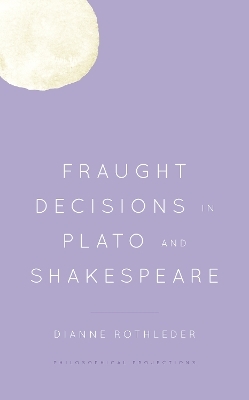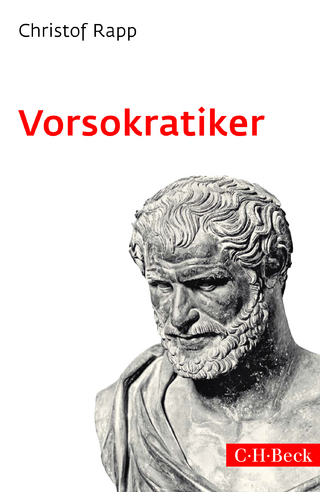
Fraught Decisions in Plato and Shakespeare
Seiten
2022
Rowman & Littlefield (Verlag)
978-1-5381-4707-8 (ISBN)
Rowman & Littlefield (Verlag)
978-1-5381-4707-8 (ISBN)
Reading Shakespeare’s plays alongside Plato’s Republic, this book shows the intersections between literary, philosophical, and political moments in the texts and demonstrates that philosophical interventions are crucial to decision making and managing uncertainty, error and risk.
In the reincarnation myth in Book X of Plato’s Republic, the unnamed first soul, who has lived a good life and has been rewarded in the afterlife, chooses a new life and fate, and chooses catastrophically badly. He finds himself fated to eat his own children. Despite being warned to blame only himself, he wails and blames anything and everything else in his conviction that his fate is undeserved. Though he should not be shocked because he has made this choice himself, he is incredulous because he has completely misunderstood the nature of his choice. Starting with Plato’s myth, this book looks at the errors this soul has made and considers these errors through both the Republic and a series of paired Shakespeare plays.
Reading the Republic along with Othello and The Comedy of Errors, the first section focuses on the misreading of comedy and tragedy in the life of the individual; returning to the Republic and using The Merchant of Venice and Pericles, Part II focuses on the broadened context of the misuse of political and economic forces; returning again to the Republic and reading Timon of Athens and Measure for Measure, Part III focuses on the broadest context, the misunderstanding of the inseparability of birth and infinite debt. The hope of the text, and the hope of human life, is to help us avoid choosing lives that devour what we most love.
In the reincarnation myth in Book X of Plato’s Republic, the unnamed first soul, who has lived a good life and has been rewarded in the afterlife, chooses a new life and fate, and chooses catastrophically badly. He finds himself fated to eat his own children. Despite being warned to blame only himself, he wails and blames anything and everything else in his conviction that his fate is undeserved. Though he should not be shocked because he has made this choice himself, he is incredulous because he has completely misunderstood the nature of his choice. Starting with Plato’s myth, this book looks at the errors this soul has made and considers these errors through both the Republic and a series of paired Shakespeare plays.
Reading the Republic along with Othello and The Comedy of Errors, the first section focuses on the misreading of comedy and tragedy in the life of the individual; returning to the Republic and using The Merchant of Venice and Pericles, Part II focuses on the broadened context of the misuse of political and economic forces; returning again to the Republic and reading Timon of Athens and Measure for Measure, Part III focuses on the broadest context, the misunderstanding of the inseparability of birth and infinite debt. The hope of the text, and the hope of human life, is to help us avoid choosing lives that devour what we most love.
Dianne Rothleder teaches in the Interdisciplinary Honors Program at Loyola University Chicago. She is the author of The Work of Friendship: Rorty, His Critics, and the Problem of Solidarity.
| Erscheinungsdatum | 26.08.2022 |
|---|---|
| Verlagsort | Lanham, MD |
| Sprache | englisch |
| Maße | 156 x 230 mm |
| Gewicht | 404 g |
| Themenwelt | Geisteswissenschaften ► Philosophie ► Philosophie Altertum / Antike |
| Geisteswissenschaften ► Sprach- / Literaturwissenschaft ► Anglistik / Amerikanistik | |
| Geisteswissenschaften ► Sprach- / Literaturwissenschaft ► Literaturgeschichte | |
| Geisteswissenschaften ► Sprach- / Literaturwissenschaft ► Literaturwissenschaft | |
| ISBN-10 | 1-5381-4707-6 / 1538147076 |
| ISBN-13 | 978-1-5381-4707-8 / 9781538147078 |
| Zustand | Neuware |
| Informationen gemäß Produktsicherheitsverordnung (GPSR) | |
| Haben Sie eine Frage zum Produkt? |
Mehr entdecken
aus dem Bereich
aus dem Bereich
mit Sokrates, Seneca, Platon & Co. im Gespräch
Buch | Hardcover (2023)
FinanzBuch Verlag
18,00 €


